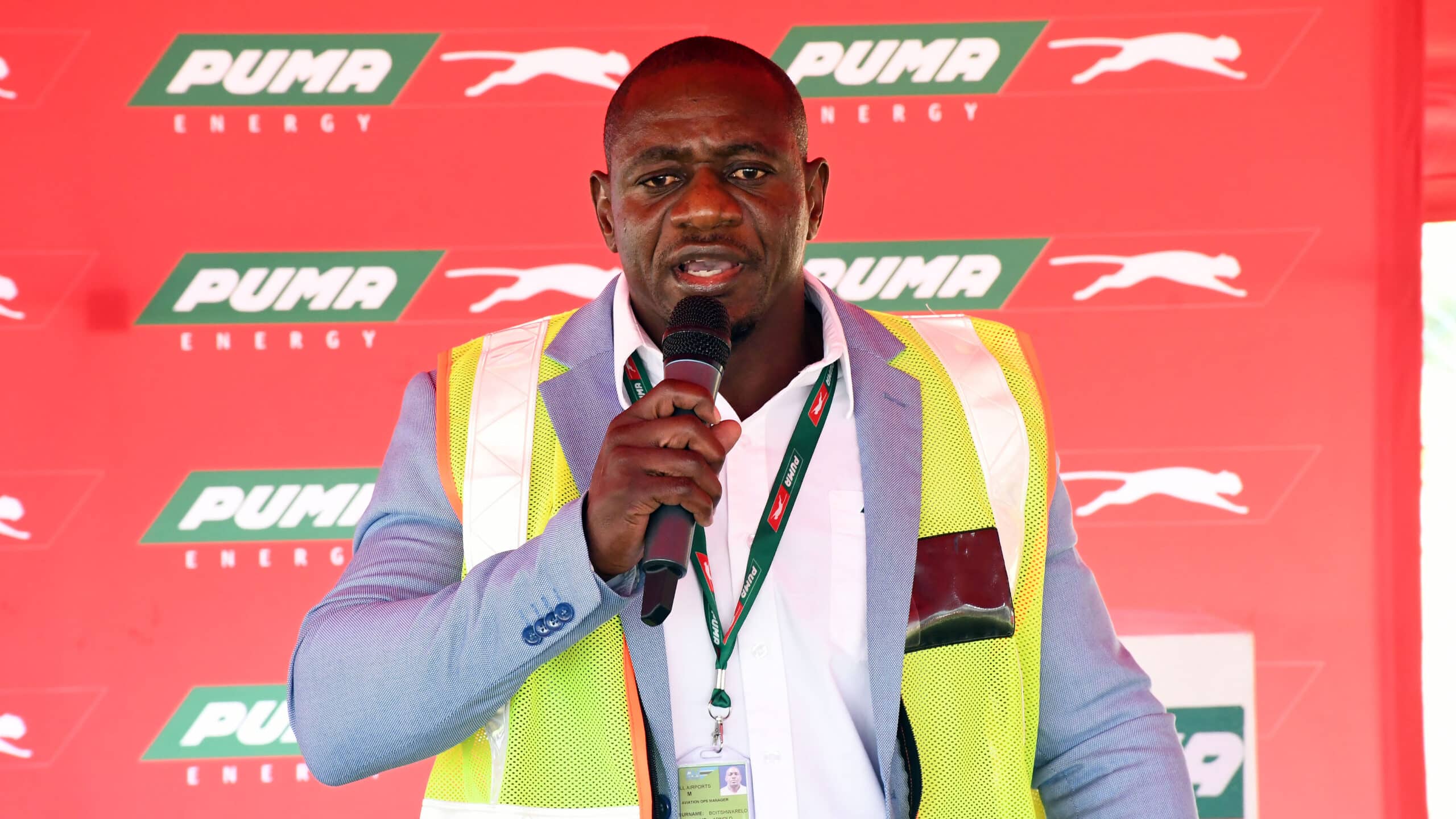*US$156 Million Invested In Fueling and Service Efficiency Standards Since 2010
With tourism expected to play a pivotal role in the growth of the country’s Gross Domestic Product(GDP), local aviation fuel supplier, Puma Energy Botswana says they’ve enough fuel to supply the local market without any challenges.
Speaking at the aviation energy security media tour on Wednesday, Puma Energy’s Head of Aviation Arnold Boitshwarelo said through their alternative supply routes they have made sure that there is constant supply of fuel locally without any disruptions to the sector.
According to the World Travel and Tourism Council report of 2023, travel and tourism is expected to grow by 4.6 percent annually with tourism contributing close to 13.5 percent to the local GDP and P20.2 billion in tourist expenditure throughout the year 2024.
As a result, with increased movement into the country, aviation fuel consumption is expected to boom prompting robust aviation gas supply availability which will ensure continuous supply therefore guaranteeing security locally and enabling the tourism sector to thrive.

Since 2010, Puma Energy Botswana has invested US$156 million for the state of the art refueling infrastructure and equipment across the four airports in Botswana which also include introducing modern aviation equipment and providing training to local staff in order to align with aviation international standards.
“We are currently getting our fuel from South Africa’s NATREF refinery which is just outside Johannesburg. Though this remains our most economical route we have ensured that we don’t go dry or face any supply problems by securing deals through our alternative routes in Walvis Bay, Namibia and Matola in Mozambique,” said Boitshwarelo.
Puma Energy Botswana supplies the tourism, mining, agriculture and commercial retail sectors with Jet A1, for big aircrafts and Avgas used by small aircrafts.
Their services further expands to Botswana Defense Force(BDF), Botswana Police Services(BPS) and Debswana Diamond Company air operations .
Supplying four of Botswana’s airports,(Maun, Kasane, Francistown and Gaborone), the Jet A1 storage capacity currently stands at 859 000 litres while Avgas storage capacity is at 234 000 litres.
“We have never run out of fuel stock. Aviation gas is our number one priority,” said Puma Energy Botswana Managing Director Dominic Dhanah.
He further said secure and reliable supply of aviation fuel is key due to the impact it can have on any economy.
He said beyond their investment in storage capacity and focus on security of supply, they continue to identify and implement innovative initiatives that add value to the services they offer their clients.
“These include solutions that automate and secure processes and reduce a real time 360 degree view of the business, speed up fueling and invoicing processes and reduce errors,” he said.
A global leader in energy business, Puma Energy has over 40 retail sites in Botswana and serves four airports and airfields which they took over from BP in 2010.
As of 2016, Puma Energy Botswana is owned 80 percent by Puma Energy International while the remaining 20 percent stake is held by Botswana Public Officers Pension Fund(BPOPF).
Operating across six continents, Puma Energy serves in 25 countries with 1979 retail sites which 676 of those are in Africa ,117 airports and airfields globally with 91 of those in Africa.






